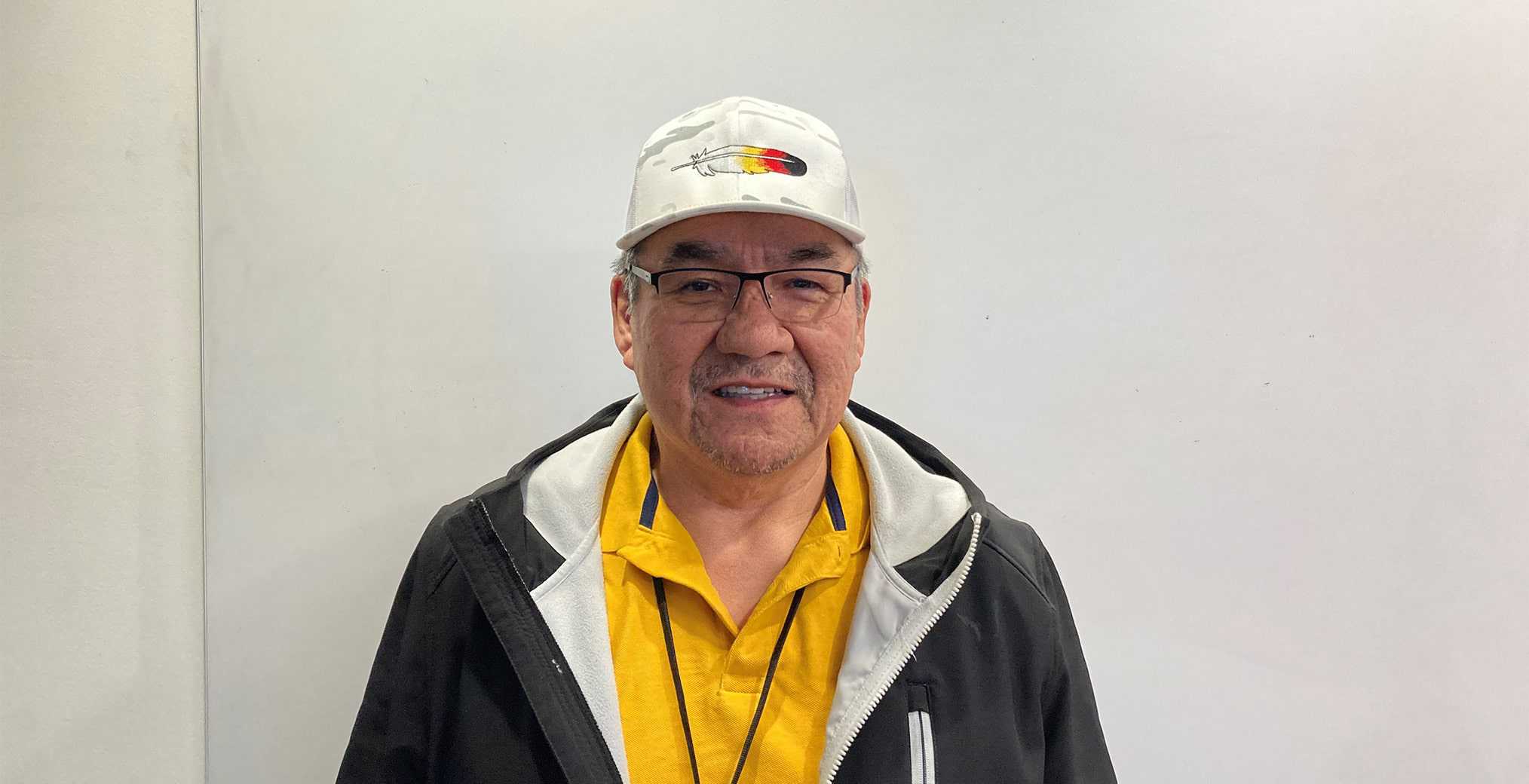October 27, 2022
We thank Christopher Herodier, Community Information Officer and residential school survivor from Chisasibi, for sharing some of his life so openly with us. Read on to see his path on his healing journey and what he sees LGA is about for him.
Tell us a bit about yourself. What’s your background and how are you involved with LGA?
I’m a residential school survivor and because of that, life has been quite a journey for me. When I was four years old, on my second day at the residential school, I was molested by a man there and it’s impacted my life greatly ever since. Even as a teenager, I knew I had a lot of healing to do so I started my education in social work to help myself and others. It helped me quite a bit to see how the mind works, how people work and how to better equip myself with healing strategies.
But the road to healing is always paved with some suffering. I went through really hard times, my marriage dissolved, I lost everything, and I lived on the street for seven months. Then one day, I met a native woman who I got to talking with. She encouraged me to go into script writing, so I applied for school at Algonquin College and eventually got a certificate in that field.
I acquired some more papers and a diploma to match my diverse set of interests –recording arts and music industry arts. I also wrote a book of short stories (Paths and Journeys), and recorded music and even became a broadcast journalist at CBC North for a few years.
In 2020, I heard about LGA and applied for the job of Community Information Officer and have been working for the Cree community in that role ever since.
What led you to be involved as CIO?
I saw what happened to my community when it was displaced back in the 1970’s. We weren’t even told what was happening, we just knew people were always coming and going and eventually, our rivers were dammed, and no one asked our permission to make that drastic change. I’ve learned from the leaders of the past, the wise people who worked with the government during the James Bay Agreement, who had a vision and helped shape what was needed for future generations. With LGA, I realize nothing is perfect but at least we, the Cree community, have a say, we’re able to practice our culture and make our voices heard. Being a part of LGA doesn’t mean I support it, and it doesn’t mean I don’t support it – it just means I’m learning and passing along that education to my community.
What is the purpose of your position?
LGA is still very much in the beginning stages and I’m here to pass on what I know. I just want to educate Cree people and relay our opinions to LGA. For example, someone in my community told me the railroad that’s up for consideration would go right through his home on his traditional lands, if it were to be built. My job in that instance is to help him understand the tools he has to speak up, to let his voice be heard, and to feel empowered to talk about it.
How does your work help your community?
I’m essentially the messenger for the Cree community. I need to help them understand some on what’s going on with their land and the potential development of it. I relay updates as I get them and give information so we can all make informed decisions together.
What is the most important part of LGA, in your opinion?
Saving our language and culture is important to me. And our language is related to the land. The way I speak Cree is different from the way young people speak Cree because the way we relate to the land has changed. It’s critical we preserve our culture as best we can. We must be the ones to try and figure out how we manage that as a community.
Any parting words?
I think that people must keep an open mind and think about future generations – what would they want? We’re not going to be around when some of these potential developments could happen. We have to give our youth a foundation to make their own decisions and figure out what direction to go. Just like they did in 1975, they laid a foundation for us to keep going.
